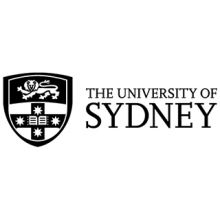All but one of the public universities in Australia’s most populous and richest state finished 2022 in the red, as rising costs and investment reversals erased the wall-to-wall surpluses posted the previous year.
Accounts presented on 31 May suggest that New South Wales’ (NSW) universities are still weathering the financial impacts of the Covid-19 pandemic and other global disruptions. Nine of the 10 institutions registered deficits last year, with earnings down and expenses up.
Collectively, the 10 universities traded a A$2.1 billion (£1.1 billion) surplus in 2021 for a A$134 million shortfall in 2022. As in other states, investment losses were the major factor, accounting for A$1.3 billion of the turnaround.
But inflation also had a significant influence, with “other expenses” – an umbrella category covering areas such as security, travel, cleaning, consumables, marketing, student scholarships and contracted services – rising by about 14 per cent to increase the cost base by some A$360 million.
Employee-related costs rose by about 5 per cent, adding another A$320 million to expenses. Overall, operating costs surged above 2019 levels after two years of Covid-induced belt-tightening.
The biggest reversal occurred at the only institution that managed to avoid falling into deficit. The University of Sydney’s A$302 million surplus was well down from its A$1.05 billion result the previous year.
Sydney’s investment earnings were down by some A$440 million, while its federal government funding declined by about A$90 million. Meanwhile, staff costs rose by some A$80 million and other expenses by about A$50 million.
But the university’s losses were softened by a A$50 million boost in international education earnings, raising revenue from this source to about A$1.4 billion – well over the total earnings of most of the state’s other universities.
“Despite ongoing headwinds, the university again finished the year in a remarkably good position,” chancellor Belinda Hutchinson and vice-chancellor Mark Scott remarked in a foreword to their annual report.
Sydney’s finances have proven immune to Covid-19 border disruptions, with its income from overseas students rising to more than 30 per cent above pre-pandemic levels. Three other NSW universities increased their international education takings in 2022.
A A$6 million boost in earnings from foreign students at the University of Wollongong’s Australian campuses took some of the sting off the institution’s A$28 million deficit.
“While the financial impacts of the pandemic linger, the university remains on a sound and sustainable financial footing and the gradual return of international students to our Australian campuses is a positive sign for the future,” Wollongong noted. But it added that its domestic teaching revenue had declined, partly because of government funding changes.
The NSW Auditor-General’s office, which released a combined report on the state’s universities, said domestic enrolments had decreased by 5 per cent while international student numbers were down by just 1 per cent.
Vice-chancellors’ pay declined at five institutions and remained unchanged at two others, reducing the average package by 4 per cent to about A$924,000. Nevertheless, half of the state’s university leaders pocketed seven-figure earnings.
Register to continue
Why register?
- Registration is free and only takes a moment
- Once registered, you can read 3 articles a month
- Sign up for our newsletter
Subscribe
Or subscribe for unlimited access to:
- Unlimited access to news, views, insights & reviews
- Digital editions
- Digital access to THE’s university and college rankings analysis
Already registered or a current subscriber? Login











